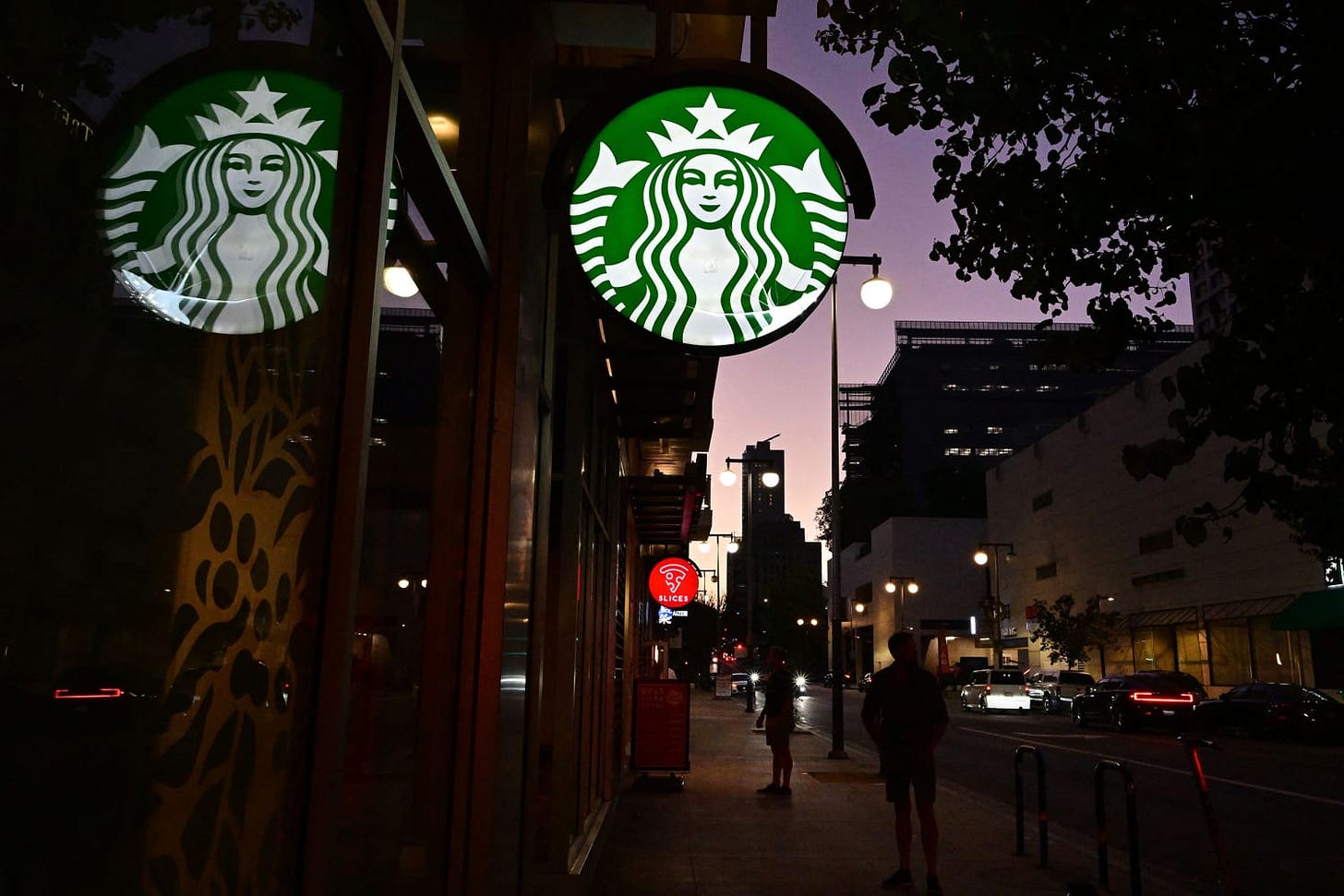08/06/2024: Yet Another Starbucks Case
The Starbucks Labor Relations Board keeps on trucking.
Starbucks Corporation, JD-47-24, 14-CA-291388 (ALJ Decision)
The case involves allegations that Starbucks violated the NLRA through various actions at two stores in Missouri during a union organizing campaign. The administrative law judge (ALJ) found Starbucks violated Section 8(a)(1) by prohibiting employees from posting union-related notes while allowing non-union postings. The ALJ dismissed all other allegations, including claims of unlawful surveillance, discriminatory enforcement of dress code and attendance policies, unlawful discipline and discharge, unilateral changes to student employment policies, and coercive interrogation.
Legal Analysis:
Posting prohibition: The ALJ found this violated Section 8(a)(1), citing precedent that if an employer allows employees to post non-work related items on bulletin boards or similar, it cannot legally disallow union literature postings in the same locations. Benteler Industries, 323 NLRB 712 (1997) (finding employer violated Act by refusing union literature postings while allowing personal notices).
Surveillance: The ALJ found no violation, as the single incident of a manager mentioning seeing an employee's social media post was too isolated to create an impression of surveillance.
Dress code enforcement: The ALJ found insufficient evidence of disparate enforcement against union supporters, noting some pro-union employees wore union apparel without discipline.
Discipline/discharge: Analyzed under Wright Line, 251 NLRB 1083 (1980) framework. The ALJ found the General Counsel failed to show the disciplinary actions were motivated by union animus rather than legitimate policy violations.
Student employment policy: The ALJ found no established past practice of allowing students to remain on payroll during school, so no unilateral change occurred.
Interrogation: The ALJ found questions asked during representation hearings were not coercive under either the Rossmore House, 269 NLRB 1176 (1984) or Guess?, Inc., 339 NLRB 432 (2003) standards, as they were relevant foundational questions in a formal hearing setting.

